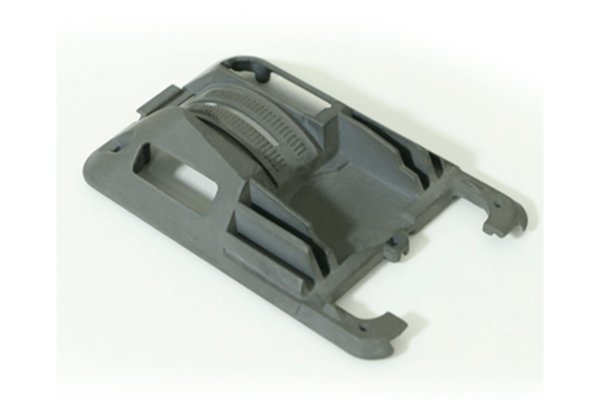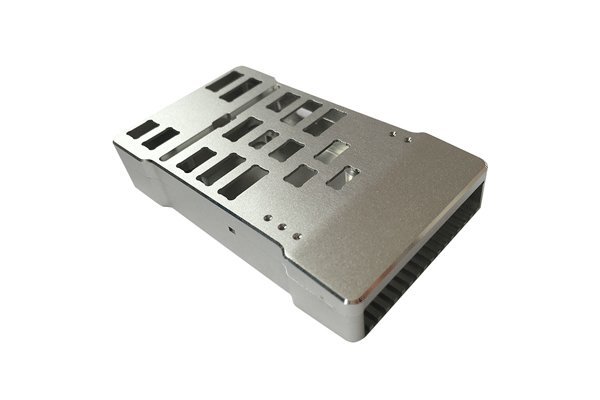Interesting Fact:
Did you know that aluminum is the second most used metal in the world after steel? Its lightweight, corrosion-resistant properties, and excellent strength-to-weight ratio make it an extremely popular choice in a variety of industries, including automotive, aerospace, and construction. In fact, the global aluminum extrusions market reached a staggering $60 billion in 2020 and is projected to grow substantially in the coming years. As industries continue to seek ways to produce custom parts efficiently and cost-effectively, CNC machining for aluminum extrusions stands out as an optimal solution.
In the world of manufacturing, precision and efficiency are paramount. One of the most significant advancements in technology to improve these aspects is Computer Numerical Control (CNC) machining. Among the materials that benefit from CNC machining, aluminum extrusions have emerged as a game-changer, allowing manufacturers and businesses to design custom parts that meet specific requirements.
This blog explores the benefits of using CNC machining for aluminum extrusions in custom parts production, providing detailed insights into the technology’s applications, processes, techniques, and best practices. Whether you’re a seasoned manufacturer looking to optimize your processes or a business owner seeking innovative manufacturing solutions, this blog will serve as your comprehensive guide.
Understanding CNC Machining
CNC machining encompasses a range of processes in which computer software controls machine tools to cut and shape materials into desired forms. The controlled machinery enables precise movements and operations, allowing for intricate designs and high-quality outputs with minimal human intervention.
Why Choose Aluminum for Custom Parts?
Before delving into the CNC machining process, it’s essential to understand why aluminum is the material of choice for many industries. Some of the key reasons include:
The Process of CNC Machining for Aluminum Extrusions
CNC machining for aluminum extrusions involves several critical steps, each executing specific functionalities to produce high-quality custom parts. Below is a concise overview of each phase of the process.
Advantages of CNC Machining for Aluminum Extrusions

Leveraging CNC machining for aluminum extrusions provides myriad advantages in custom parts production, including:
CNC machines can produce components within millionths of an inch of tolerance. This level of precision is challengeable with traditional machining methods, making CNC ideal for industries that demand high reliability.
Due to the automation of operations, CNC machining significantly reduces production time. Parts can often be machined in one setup, eliminating the need for subsequent handling and setups.
CNC machining allows for exceptional design flexibility. Once the machine is programmed, creating complex and intricate designs is straightforward, enabling manufacturers to produce one-off custom parts or large production runs with ease.
When it comes to reducing manufacturing costs, CNC machining delivers substantial savings in both labor and material usage. The accuracy of machining minimizes waste, and automation reduces labor costs.
CNC machining suits various production scales, whether it’s a prototype, short-run, or mass production. As demand increases, it can produce larger quantities with minimal adjustments.
Unlike manual machining processes, CNC operates with remarkable consistency. Once a program is established, it can reproduce the same part countless times with identical specifications.
Applications of CNC Machining for Aluminum Extrusions
CNC machining of aluminum extrusions has vast applications across different sectors:
Challenges and Considerations
Despite the countless benefits of CNC machining for aluminum extrusions, there are challenges that manufacturers must consider:
CNC machining for aluminum extrusions is a pivotal innovation in custom parts production that combines precision, efficiency, and versatility. As industries increasingly demand unique and high-performance components, leveraging CNC technology offers a competitive edge.
From design through to production and quality control, CNC machining transforms the way manufacturers approach the creation of parts. Understanding the intricacies of this process not only empowers businesses to innovate but also assists in optimizing operations for maximum profitability.
In closing, embracing CNC machining for aluminum extrusions can revolutionize how companies approach manufacturing, underscoring its importance in the broader landscape of industrial processes. As you consider implementing these techniques in your production line, remember that the right tools, skilled workforce, and strategic planning can set your business on the path toward unparalleled success in custom components manufacturing.






